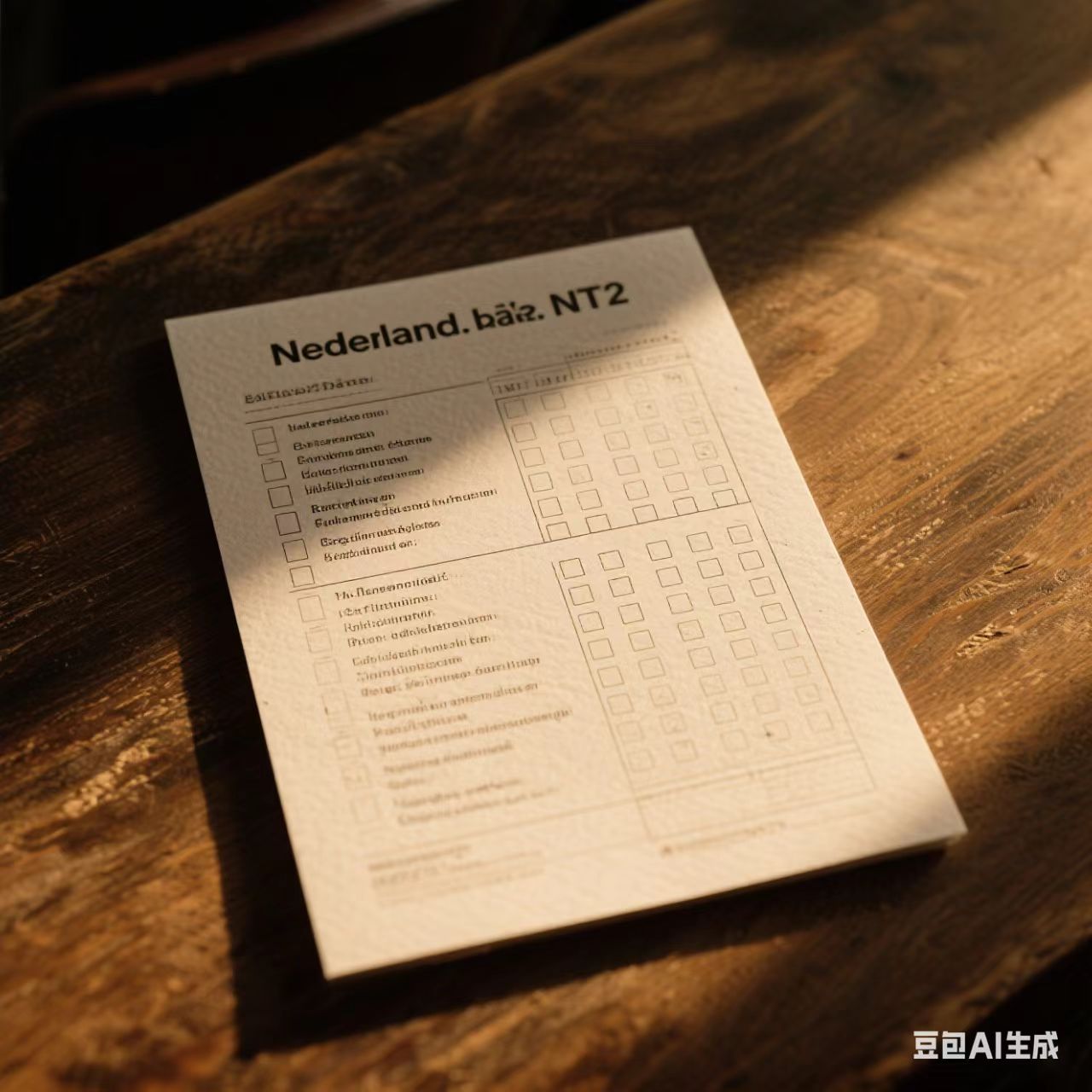The NT2 exam (Nederlands als Tweede Taal, Dutch as a Second Language Exam) is an official language proficiency test organized by the Dutch government. It assesses the Dutch language skills of non-native speakers for work, study, or daily life in the Netherlands. The level classification aligns with the Common European Framework of Reference for Languages (CEFR), divided into two core levels:
1. Programma 1 (B1 Level)
Ability Description:
Demonstrates basic independent communication skills, understanding everyday conversations and simple written materials, and engaging in fundamental work or study-related interactions.
Eligible for MBO (Middle Vocational Education) programs or basic technical jobs.
Vocabulary of approximately 3,000–3,500 words; capable of writing short, coherent texts (e.g., emails or reports).
Exam Content:
Listening: Comprehending daily dialogues, radio news clips.
Speaking: Describing personal experiences, expressing opinions, and participating in simple discussions.
Reading: Understanding announcements, instructions, and short articles.
Writing: Filling out forms, composing short messages or notes.
Application Scenarios:
Applying for Dutch vocational education (MBO) or certain technical jobs.
Meeting language requirements for partial immigration integration (e.g., long-term residency proof).
2. Programma 2 (B2 Level)
Ability Description:
Exhibits proficient language use, understanding complex texts and academic content, and conducting in-depth communication in professional fields.
Qualified for HBO (Higher Vocational Education) or WO (University) studies, or mid-to-senior professional roles.
Vocabulary exceeding 4,000 words; ability to analyze complex topics and write structured long-form texts.
Exam Content:
Listening: Comprehending academic lectures, professional interviews, and complex dialogues.
Speaking: Participating in debates, presenting arguments, and delivering academic presentations.
Reading: Analyzing academic papers, policy documents, and lengthy reports.
Writing: Drafting essays, reports, and project proposals.
Application Scenarios:
Applying for Dutch higher education (HBO/WO) or research positions.
Meeting language requirements for advanced careers (e.g., healthcare, law, management).
Key Differences from Other Dutch Language Exams
1. Inburgeringsexamen (Integration Exam):
Corresponding to CEFR A2 level, focusing on daily communication skills. Required for permanent residency or citizenship.
Includes Dutch society knowledge, listening, speaking, reading, and writing.
2. CNaVT Exam (Certificate Nederlands als Vreemde Taal):
Offered by the Dutch Language Union, covering a broader range (A2 to C1) for global learners.
Divided into categories like informal language (A2), professional language (B2-1), and academic language (C1), potentially substituting parts of the Integration Exam.
Exam Features and Notes
1. Structure:
The NT2 exam includes four separate modules (listening, speaking, reading, writing), all of which must be passed individually.
Exam fees are approximately €180, with fixed annual sessions (e.g., 8 sessions per year after 2019).
2. Exemptions:
Holders of Dutch VMBO or HAVO diplomas are exempt from the NT2 exam.
Passing the NT2 exam exempts the language component of the Integration Exam, though the society knowledge test remains required.
3. Updates:
After a 2019 exam leak incident, NT2 adjusted to fixed annual sessions with enhanced security measures.
As of 2025, no official changes to the level classification (B1/B2 core levels) have been announced.
Official Resources and Preparation Tips
Official Information: Visit the Dutch National Testing and Examinations Institute (CvTE) or Immigration and Naturalization Service (IND) websites for the latest syllabi and registration guidelines.
Study Materials: Recommended resources include the Dutch textbook De sprong (A2-B1) and NT2 op Maat series, supplemented by mock exams.
Course Support: Some language schools offer NT2 guaranteed-pass courses with targeted coaching and simulated tests.

